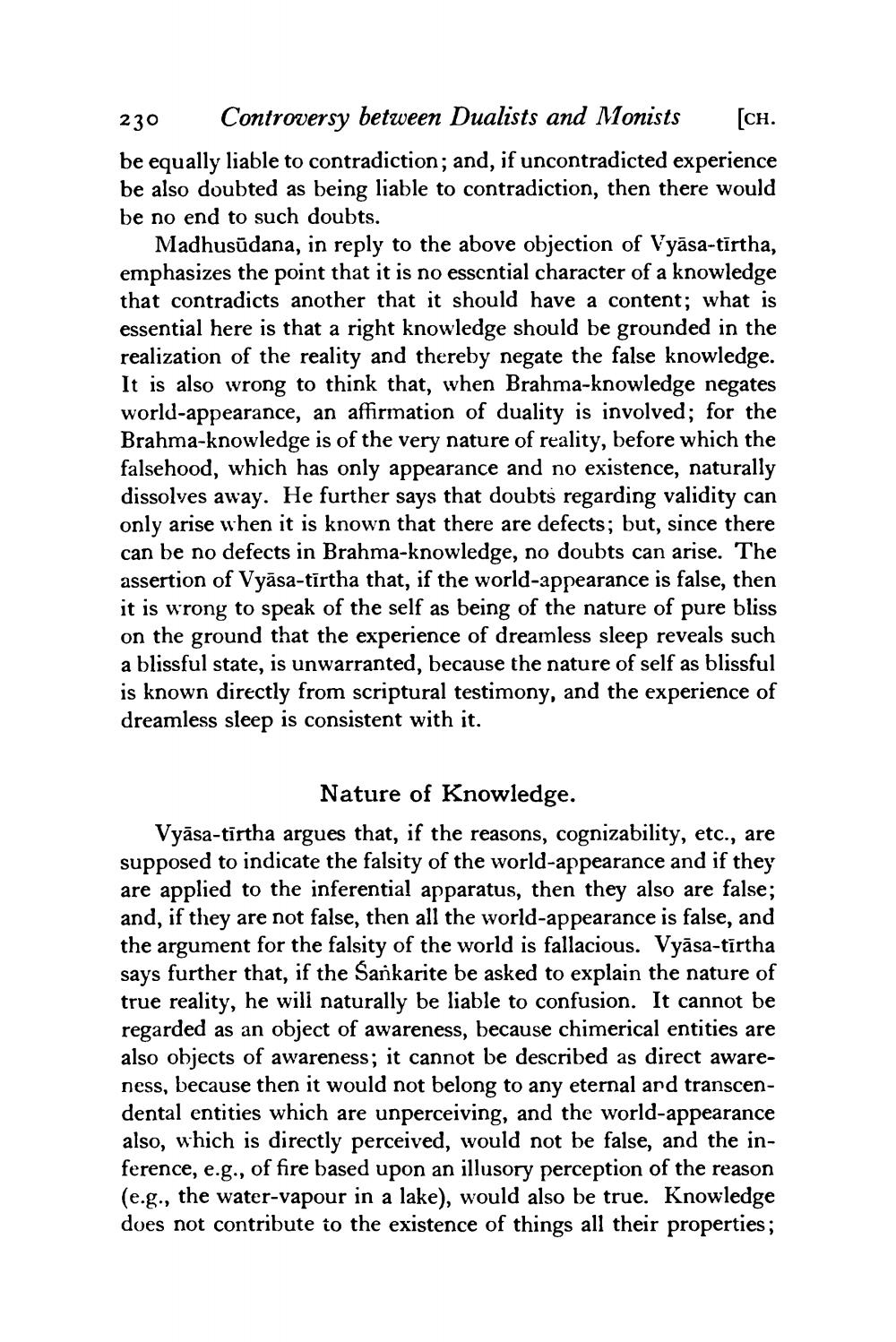________________
230 Controversy between Dualists and Monists [CH. be equally liable to contradiction; and, if uncontradicted experience be also doubted as being liable to contradiction, then there would be no end to such doubts.
Madhusūdana, in reply to the above objection of Vyāsa-tirtha, emphasizes the point that it is no essential character of a knowledge that contradicts another that it should have a content; what is essential here is that a right knowledge should be grounded in the realization of the reality and thereby negate the false knowledge. It is also wrong to think that, when Brahma-knowledge negates world-appearance, an affirmation of duality is involved; for the Brahma-knowledge is of the very nature of reality, before which the falsehood, which has only appearance and no existence, naturally dissolves away. He further says that doubts regarding validity can only arise when it is known that there are defects; but, since there can be no defects in Brahma-knowledge, no doubts can arise. The assertion of Vyāsa-tīrtha that, if the world-appearance is false, then it is wrong to speak of the self as being of the nature of pure bliss on the ground that the experience of dreamless sleep reveals such a blissful state, is unwarranted, because the nature of self as blissful is known directly from scriptural testimony, and the experience of dreamless sleep is consistent with it.
Nature of Knowledge. Vyāsa-tirtha argues that, if the reasons, cognizability, etc., are supposed to indicate the falsity of the world-appearance and if they are applied to the inferential apparatus, then they also are false; and, if they are not false, then all the world-appearance is false, and the argument for the falsity of the world is fallacious. Vyāsa-tīrtha says further that, if the Sankarite be asked to explain the nature of true reality, he will naturally be liable to confusion. It cannot be regarded as an object of awareness, because chimerical entities are also objects of awareness; it cannot be described as direct awareness, because then it would not belong to any eternal and transcendental entities which are unperceiving, and the world-appearance also, which is directly perceived, would not be false, and the inference, e.g., of fire based upon an illusory perception of the reason (e.g., the water-vapour in a lake), would also be true. Knowledge does not contribute to the existence of things all their properties;




